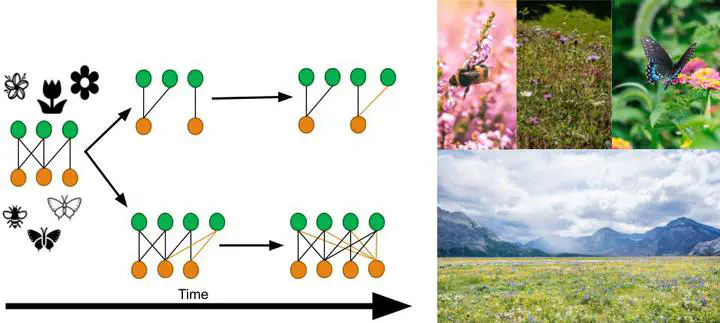Mutualistic Network Assembly Across Space

In nature, local species interaction networks are dynamic, changing in composition and structural properties as new species disperse to the area, existing species become locally extirpated, and as existing links rewire to form new associations or dissolve old ones. These local-scale changes have important impacts on regional-scale metacommunity structure and stability, and understanding the role biotic interactions play in mediating these processes can yield important insights into the maintenance of interaction network structure across scales. In order to help bridge this gap, we incorporate competitor-mediated dispersal (CMD) processes into a model of plant-pollinator network assembly across a spatially-explicit metacommunity. In addition to more broadly providing insight into feedbacks between biotic interactions and metacommunity dynamics within the context of mutualistic networks, we aim to answer the following research questions: 1) At the metacommunity scale, does the presence or strength of CMD processes tend to stabilize or destabilize population and community dynamics? 2) Do CMD processes allow the persistence of generalist species where they may be otherwise excluded? And 3) Do CMD processes, in concert with environmental heterogeneity, work to dampen or amplify spatial “hotspots” or “coldspots” of generalism?